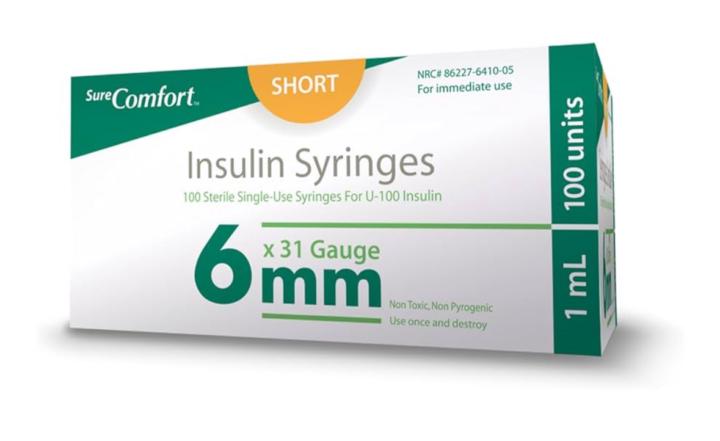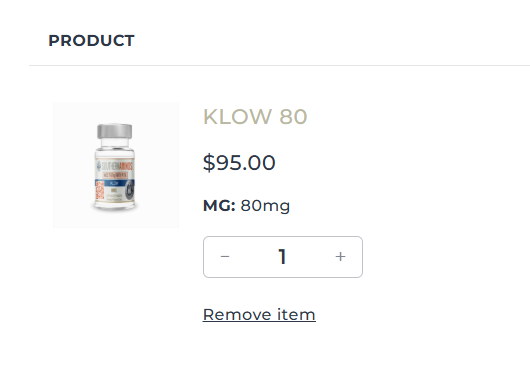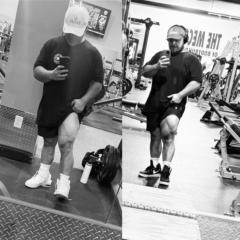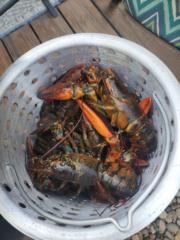Activity
Mon
Wed
Fri
Sun
Nov
Dec
Jan
Feb
Mar
Apr
May
Jun
Jul
Aug
Sep
Oct
What is this?
Less
More
Memberships
Pep Talk - For Better Health
1.7k members • Free
BIOHACKING HEROES 🦸♂️🦸♀️
9.9k members • Free
Double R Labs
115 members • Free
Biohacking Peptide Playground
1.7k members • Free
Exploring Peptides Community
7.3k members • Free
Peptide Price
5.6k members • Free
Peptide Research Forum
715 members • Free
63 contributions to Peptide Price
Does size matter?🤭
Can someone explain this 8mm,6mm 31 gauge and all that? What does that means and also does it matter at all? Is it just preference? Opinions,comments please. Thank you 🙏🏻

🌟SOUTHERN AMINOS: 35% WELLNESS SALE STACKABLE! 🌟
Southern Aminos just dropped a Wellness Sale and the stacking is absolutely insane! 💥 THE DEAL: - 20% OFF (GLOW, KLOW, BPC, and KPV) - PLUS 15% OFF with Code: DEREK15 + WELLNESS (both codes required!) - = 35% TOTAL SAVINGS when both codes are stacked 🎯 Wellness SALE : - GLOW - Recovery and healing blend - KLOW - Anti-aging blend - BPC-157 5mg & 10mg - Tissue repair research - KPV 10mg - Anti-inflammatory peptide 💡 WHY THESE COMPOUNDS: Southern Aminos is highlighting their most requested healing and anti-aging compounds. If you've been waiting to stock up on BPC-157, GLOW, KLOW, or KPV - this is your window. 🔗 SHOP THE SALE: 👉 Link https://coastpeptides.com/?ref=derek or check peptideprice.store Code DEREK15 for the additional 15%. For research use only. Stack and save!

Zinc + GHK-Cu: The Critical Balance You're Probably Missing ⚠️
Running GHK-Cu for anti-aging, skin health, or recovery? Here's what most people don't know: Copper and zinc compete for absorption. And if you're supplementing GHK-Cu without balancing zinc, you're potentially sabotaging your results. The Copper-Zinc Seesaw ⚖️ When you increase copper intake (via GHK-Cu), you can: - Deplete zinc stores over time - Disrupt the optimal copper:zinc ratio (should be 1:8 to 1:15) - Create deficiency symptoms that counteract your GHK-Cu benefits This is especially critical if you're using: - High-dose topical GHK-Cu (2-4%+) - GHK-Cu protocols - Multiple copper peptide products daily What Happens When You're Zinc Deficient? 😬 Physical symptoms: - Weakened immune function - Hair loss (ironic, right?) - Skin inflammation and acne - Poor wound healing - Fatigue Hormonal effects: - Lowered testosterone - Estrogen dominance - Thyroid dysfunction - Mood swings, anxiety, irritability The kicker? These are the OPPOSITE of what you're trying to achieve with GHK-Cu! The "Copper Uglies" Connection 🤔 Ever heard of people looking WORSE on copper peptides instead of better? It might be copper-zinc imbalance: - Excess copper increases oxidative stress - Accelerates collagen breakdown (via MMPs) - Causes inflammation - Creates that "aged" look some people report The Fix: Your GHK-Cu + Zinc Protocol 📋 If you're using GHK-Cu regularly: ✅ Supplement 15-30mg zinc daily - Use zinc picolinate or glycinate (best absorption) - Take in the evening with food - Separate from GHK-Cu application by 6-8 hours ✅ For higher doses or injectable GHK-Cu: - Consider 30-50mg zinc - Get blood work to monitor copper:zinc ratio - Work with a healthcare provider ✅ Eat zinc-rich foods: - Red meat - Pumpkin seeds - Eggs - Cashews Bottom Line 🎬 Don't optimize one mineral in isolation. GHK-Cu is powerful for anti-aging, skin regeneration, and tissue repair - BUT if you're depleting zinc in the process, you're undermining those same benefits.

🚨 ALPHA OMEGA PEPTIDE: INSANE Tirz BOGO SALE! 🚨
Alpha Omega just dropped one of the most aggressive deals I've seen - and this isn't your typical "BOGO 50%" nonsense. This is a straight-up BUY ONE GET ONE FREE on their GLP-2TZ 15mg until stock runs out. 💥 THE DEAL: - BUY ONE GET ONE FREE on GLP-2TZ 15mg ($53.14/ vial after code) - Not BOGO 50% - actual FREE second vial - Code DEREK for additional savings - Free items automatically added to cart at checkout - While supplies last - they're clearing stock Code Derek 🔗 DIRECT LINK: 👉 https://alphaomegapeptide.com/products/glp-2tz-15mg/ref/4/ ⏰ STOCK CLEARANCE: This runs until their excess inventory is gone. Once it's out, it's out. Don't sleep on this one. Alpha Omega coming in hot with a real BOGO sale. This is how you clear stock while rewarding the community! Code DEREK at checkout. While supplies last - for research use only.
GHK-cu - which one?
I'm having trouble differentiating which GHK-cu to research. On the price tool there are multiple mg options for GHK-cu and only one is lyophilized. Are they not all lyophilized? Additionally, can one be used subq AND also topically or would you need different formulations for both applications? Only one vendor indicates "topical".
1-10 of 63
Active 2h ago
Joined Sep 25, 2025
Powered by




